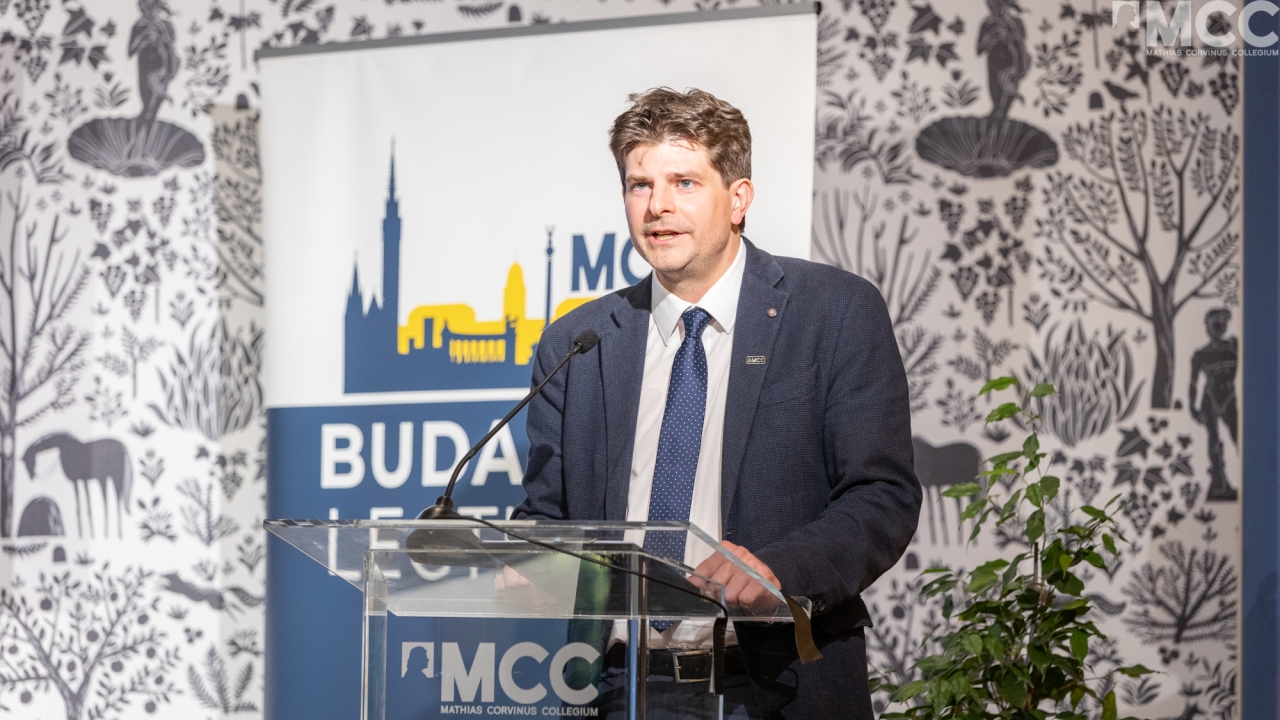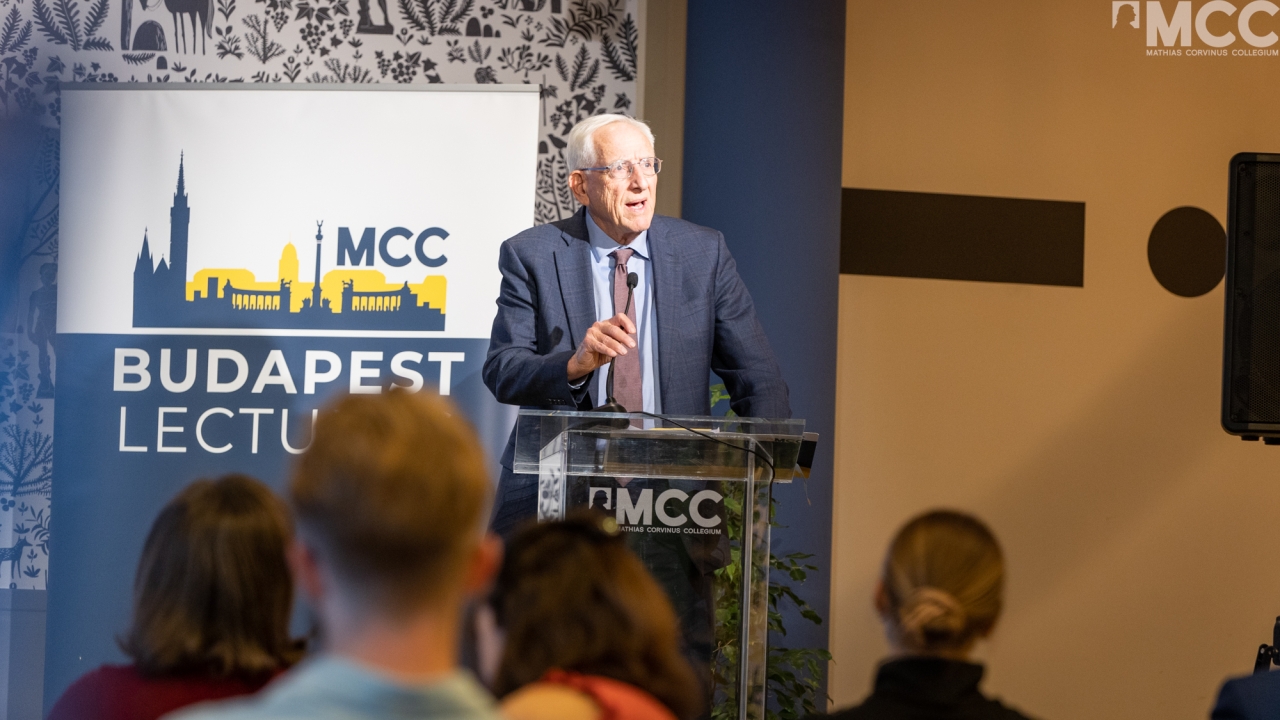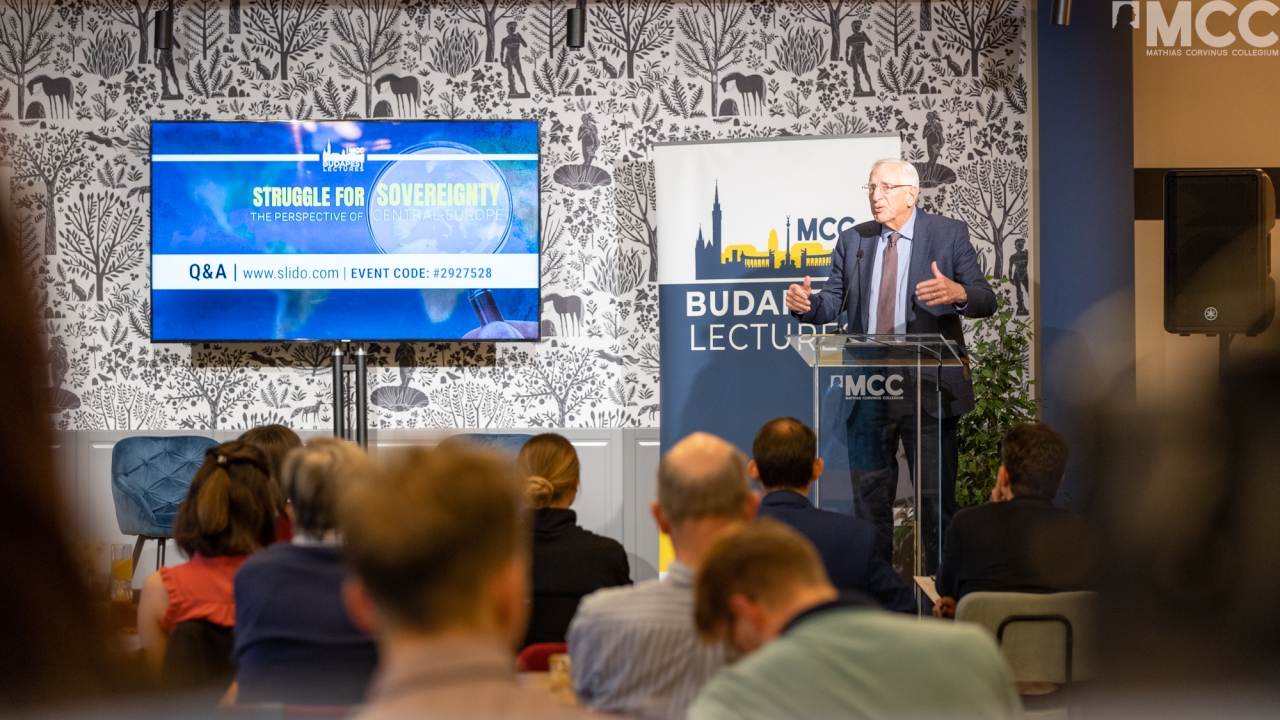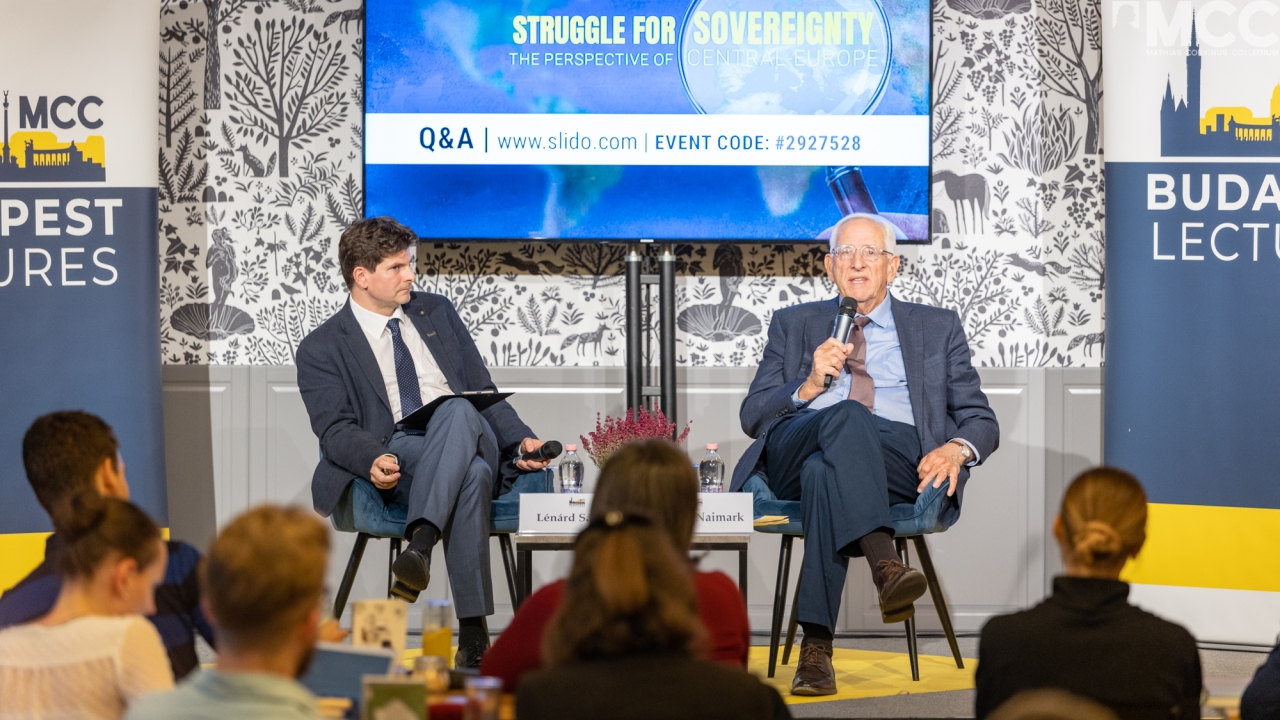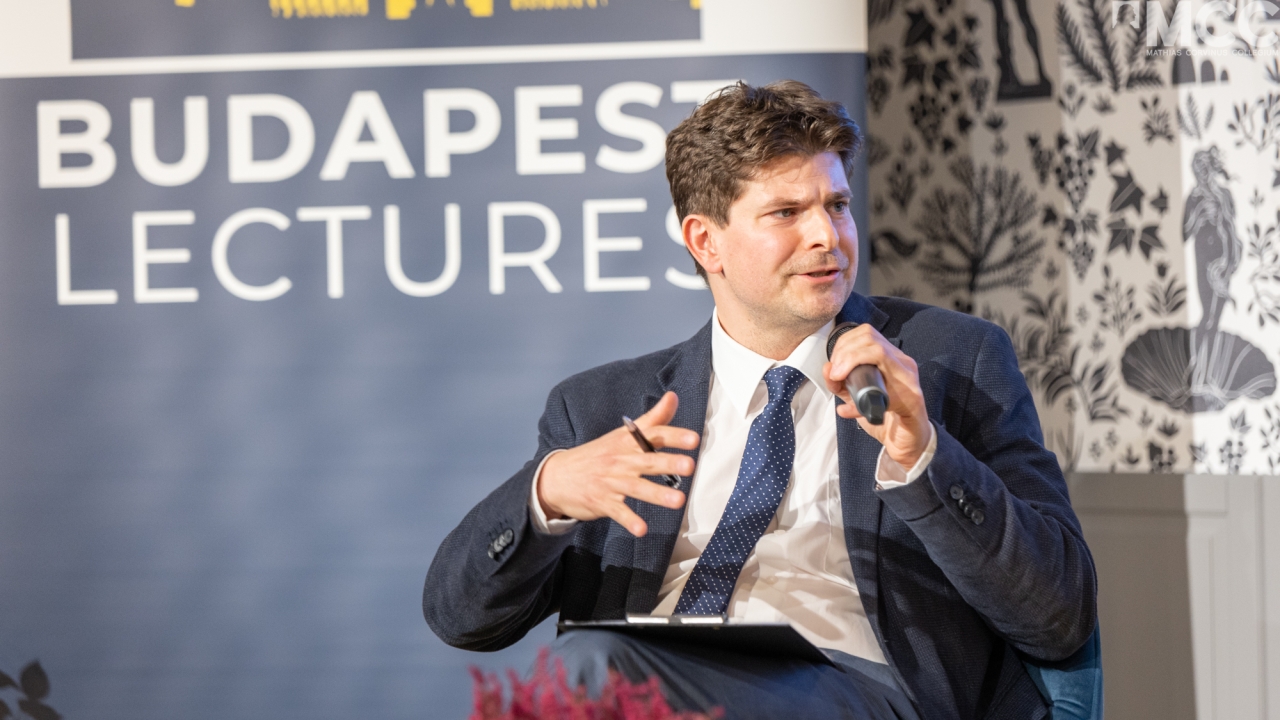Reading time: 2 minutes
The struggle for national sovereignty is far from being over in Central and Eastern Europe – Professor Norman Naimark emphasized at the newest installment of the Budapest Lectures event series of the MCC on October 20. Professor Naimark, who serves as the Robert and Florence McDonnell Professor of Stanford University, as head of the department of Eastern European history and the senior fellow of the Hoover Institution along with the Freeman Spogli Institute of International Studies, pointed out that we must constantly endeavor to defend our identities, achievements and goals. The lecture was followed by a conversation moderated by Lénárd Sándor, Head of the Center for International Law at the MCC.
Through actual historical examples, Norman Naimark also highlighted how revolutions and wars for independence shaped history. In regard to Hungary, he pointed out that the 1956 revolution has to be fought with arms while the one in 1989 with social and political means. According to the American professor, even though many people think that this fight is over, the example of the European Union and the struggles that are taking place shows that it is still a continuous challenge. He cited the example of Brexit and the breaking line between Central and Eastern Europe and Western countries. Professor Naimark also touched upon the war in Ukraine. He also pointed out that in the neighboring eastern countries, as it was the case in the Yugoslavian war once, the struggle for sovereignty is being fought with arms and bombs.
In response to the moderator’s question that reflected on the political debates in the European Union, the professor emphasized that although the motto of the Union is “unity in diversity”, the diversity of opinions and national interests are not taken into consideration in many cases. In his view, a federal system is being envisioned in Brussels, however, the European unification process should be built in the spirit of a confederation. With regard to the Balkan expansion, he stressed that the EU accession of that region serves a vital security interest of the Europe. Finally, the conversation also shed light on the historical mission and importance of Central and Eastern Europe to be a bridge between East and West.
